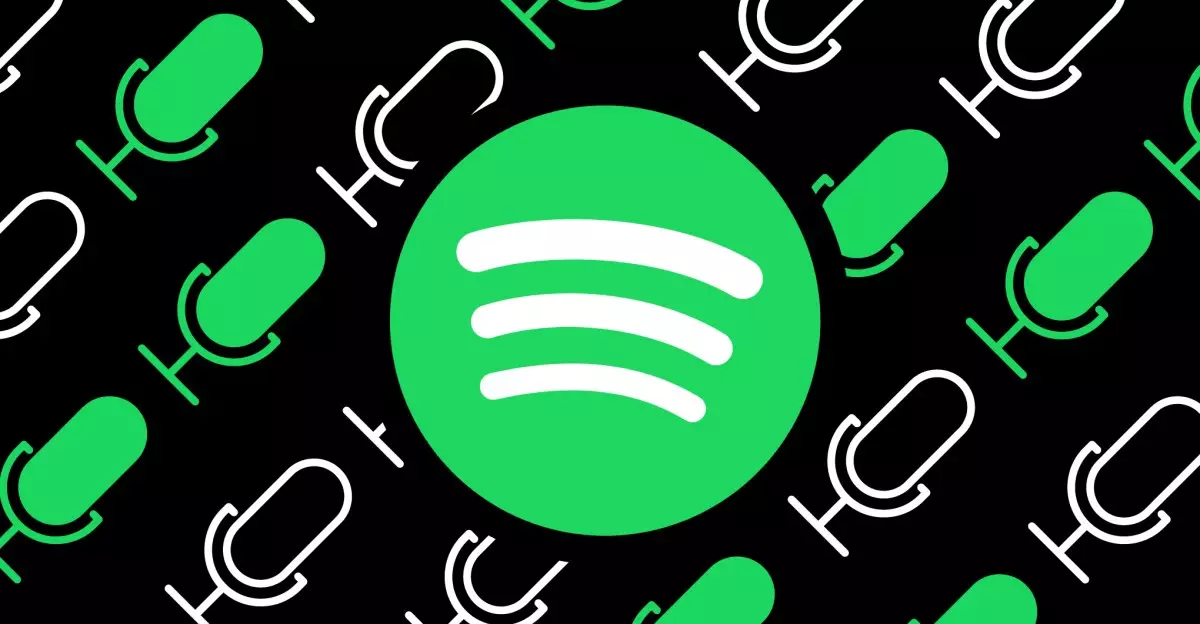Spotify is on the verge of revolutionizing the audiobook purchasing experience for iPhone users by introducing a noteworthy update that could change how audio literature is consumed on the platform. In a forward-thinking move, the streaming giant has filed to enable users to see pricing details for audiobooks directly within the app. This leap towards transparency allows users to make informed decisions on audiobook purchases rather than relying on external communications or convoluted processes that previously characterized their experience.
With the latest announcement, Spotify has showcased its commitment to enhancing user experience amidst ongoing tensions with Apple. The proposed update will allow Premium subscribers to not only access audiobooks but also purchase “top-ups” for additional listening time, conveniently consolidating multiple services into a single platform. This integration exemplifies the increasing emphasis on user-centric solutions in a crowded digital marketplace.
The Legal Landscape and Its Implications
The backdrop to this progressive update is set against a contentious legal battle between Apple and Epic Games, which has sparked a reevaluation of the rules governing in-app purchases. Judge Yvonne Gonzalez Rogers’ recent ruling highlighted Apple’s “willful violation” of prior injunctions, insisting that the tech giant cease its up to 27 percent commission on external transactions. Spotify’s initiatives, therefore, can be viewed not just as a business maneuver but as an assertion of market fairness—a plea for developers to reclaim their autonomy from Apple’s historically heavy-handed practices.
This pivotal ruling has created an opening for Spotify and other developers to assert themselves in a space where they historically had limited influence over user purchases. By adopting external purchase links, Spotify exemplifies how legal changes can foster innovation and consumer empowerment in the tech landscape.
Impact on Users and Authors
The proposed system not only benefits Spotify users but also serves as a significant breakthrough for authors and content creators. By widening access to audiobooks and providing clearer pricing models, Spotify intends to enhance the visibility of book titles and authors. This empowered ecosystem allows for a more diverse selection of audiobooks, potentially benefiting independent authors who may have struggled to gain prominence in a saturated market.
According to Spotify’s statements, this modification is more than just a strategy to increase sales; it symbolizes a reset that directly confronts entrenched practices that hinder fair competition. The service distinctly recognizes the ripple effect this decision could have—optimistically declaring it a “win for authors, audiences, and developers everywhere.”
Looking Ahead: What’s Next for Spotify and Apple?
While Apple has requested a reconsideration regarding the recent legal decisions, other applications across various sectors, including Kindle and Patreon, are already maneuvering to benefit from the newfound leniency in the marketplace. This pivotal moment invites speculation about potential shifts in app monetization and user engagement as companies reconsider their strategies in light of these developments.
Spotify’s advancement could serve as a catalyst, prompting other platforms to innovate similarly or face obsolescence in an era defined by user choice and competitive integrity. As consumers and creators alike await the outcome of Spotify’s endeavors and Apple’s legal responses, it remains crucial for the industry at large to recognize and embrace this transformative potential in the digital age.


Leave a Reply